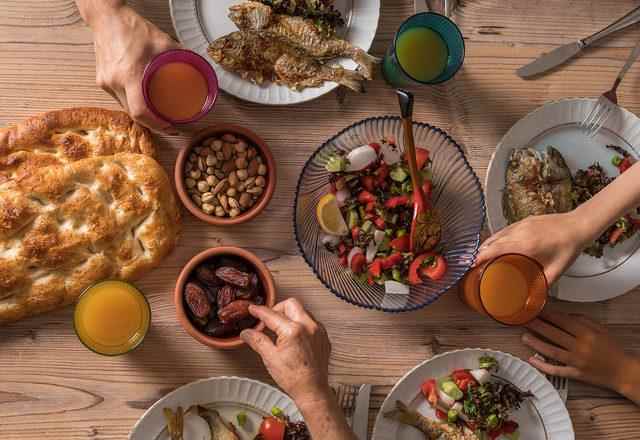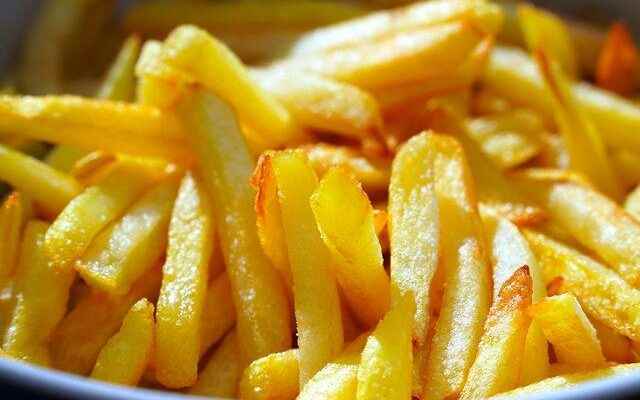There is talk every year about how to eat right in Ramadan. Ramadan ensures that there are crowded tables that gather everyone together. The arrival of guests causes more food to be made, which leads to an unhealthy diet. Especially the foods consumed in sahur affect the body resistance all day. Nutrition and Diet Specialist Dyt. Nurdan Çeliktaş said, “It is important to make the right choices in sahur in order to spend the time until the iftar in a healthy and energetic way.”
CALORIE FOODS CAUSE WEIGHT GAVE
While there are only a few days left for the month of Ramadan, the sultan of 11 months, Nurdan Çeliktaş, Nutrition and Diet Specialist of Kızılay Kartal Hospital, warned the citizens about proper nutrition during the month of Ramadan and made suggestions. Noting that eating habits have changed in Ramadan and more attention is paid to iftar meals, Çeliktaş stated that consuming calorie foods after long hours of fasting can lead to unhealthy diet and weight gain.
FOODS SUCH AS FRYING AND SALAMI, SAUSAGE SHOULD NOT BE PREFERRED
Nutrition and Diet Specialist Çeliktaş listed the points to be considered while fasting as follows:
“During the Ramadan period, we can fast without getting dizzy, without cutting our hands or feet, by paying attention to some things, without getting a headache. First of all, adequate and balanced nutrition should be maintained. Foods such as heavy and fatty foods, fried foods, salami, sausages and sausages should be avoided. These trigger diseases such as indigestion, heartburn, high or low blood pressure.
HOW SHOULD THE RIGHT NUTRITION BE IN SAHUR?
Stating that they recommend fasting people to get up for sahur and have breakfast at sahur, Çeliktaş said, “A light breakfast consisting of foods such as milk, yogurt, cheese or a meal consisting of light meals such as soup, vegetables and olive oil should be preferred for sahur dinner. We recommend that those who have excessive hunger problems during the day consume foods such as dry beans, chickpeas, lentils, bulgur pilaf, which delay hunger by prolonging the emptying time of the stomach, and stay away from excessively oily, salty and heavy meals and floury foods. In addition, 2-2.5 liters of water should be consumed. It should not be consumed in large quantities at once, but should be distributed between iftar and sahur.”
HOW TO FEED IN IFTAR?

Nutrition and Diet Specialist Çeliktaş warned, “After prolonged fasting, blood sugar decreases as a result of unbalanced nutrition. In order to prevent this, fasting should be broken with 2 glasses of warm water and 1-2 dates.” Çeliktaş said, “It would be better if soup and salad are preferred after breaking the fast with 1 glass of water and 2 dates in iftar. It is necessary not to make a quick start because of a long hunger. After a 15-minute break, a meaty vegetable dish or protein source foods such as chicken, meat, fish, whole grain bread or bulgur pilaf by paying attention to the portions, dried legumes rich in pulp can be preferred as a side dish. Yoghurt can also be used at iftar tables and can be consumed as ayran and tzatziki. You can also use compost. We recommend consuming fruit and yoghurt as a snack 1-2 hours after iftar.
EAT SLOW AND CHEEW WELL

“As a result of long hunger throughout the day, blood sugar is very low and hunger signals to the brain increase, so a desire to consume a large amount of food in a short time arises. That’s why you can eat too fast and consume a lot of food,” Çeliktaş said, “Eating slowly and chewing well should be taken care of. Because fast and large amounts of food can negatively affect blood pressure, as well as cause a rapid rise in blood sugar.
